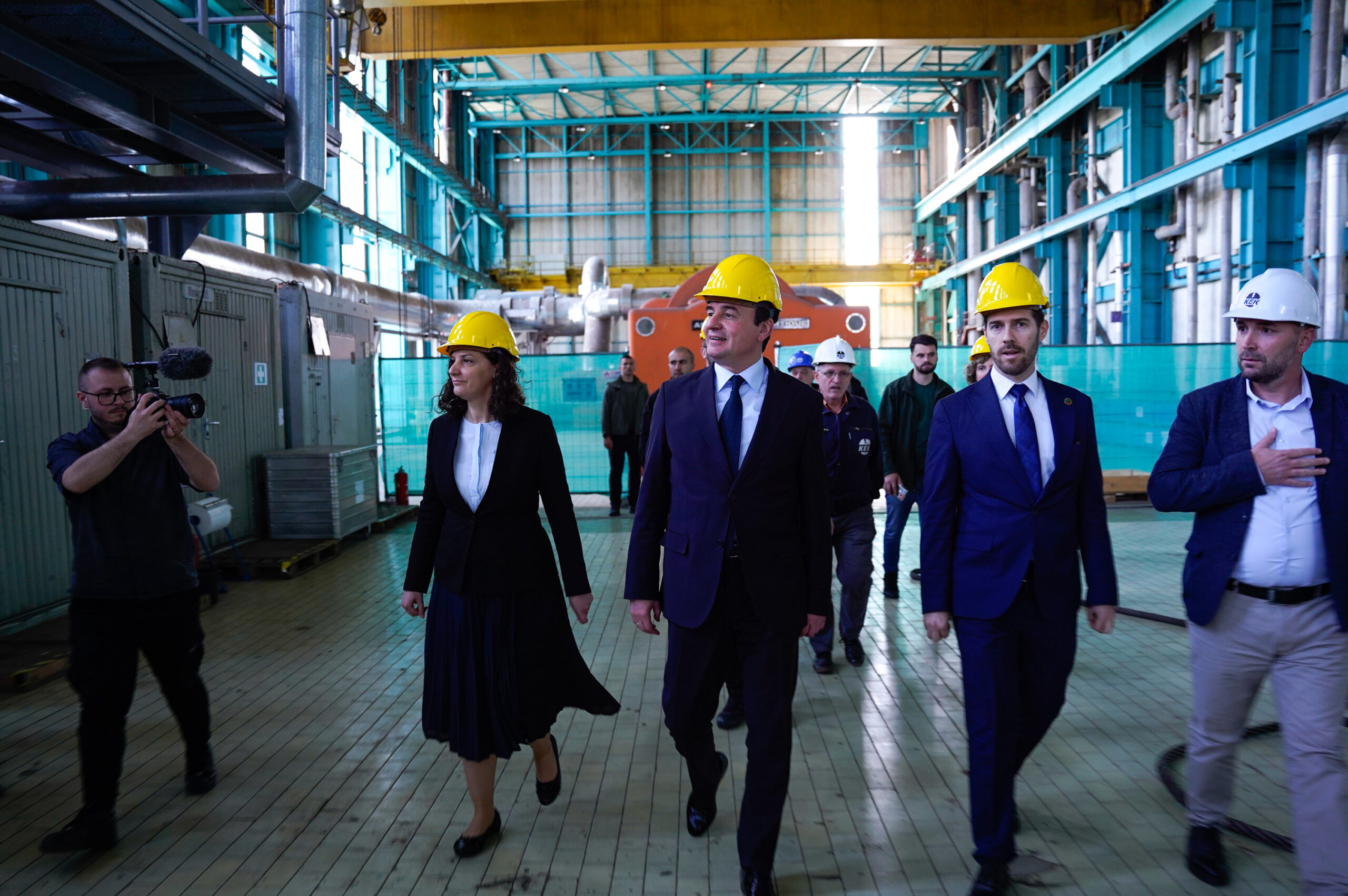Works begin on the modernisation of the Kosova B Thermal Power Plant – a 56.5-million-euro investment by the Kosovo Energy Corporation
Obiliq, 28.04.2025 – The Caretaker Prime Minister of the Republic of Kosovo, Albin Kurti, together with the Caretaker Minister of Economy, Artane Rizvanolli, today visited the Kosova B Thermal Power Plant to mark the launch of works on the modernisation of unit B2, an investment of the Kosovo Energy Corporation (KEK). They were received by the Acting Chief Executive Officer of KEK, Gramos Hashani.
For the first time, repair and modernisation works have begun at KEK’s existing thermal power plants, increasing capacity per unit, providing an additional annual output of more than 600 GWh, and enabling safer and more efficient operation of the units of the Kosova B Thermal Power Plant. The implementation of rehabilitation projects is based in the feasibility study for the Kosova B TPP. This rehabilitation will contribute in meeting environmental requirements by reducing air pollution and ensuring compliance with European Union (EU) directives on dust and gas emissions.
“I warmly congratulate you on this modernisation of the turbines at the Kosova B Thermal Power Plant, both unit B1 and unit B2, which have been sequenced in time so that we achieve maximum production while simultaneously increasing output, safety and efficiency, and reducing pollution”, said Prime Minister Kurti during the visit.
He especially commended the management and workers of KEK for financing this 56.5-million-euro investment from KEK’s own resources, from which an additional 600 GWh of electricity will be generated, which is a good news for the citizens, industry and economy of Kosovo.
Minister Rizvanolli stated that once all rehabilitation works at the Kosova B Thermal Power Plant are completed, its lifetime will be extended by 20 years, dust and nitrogen-oxide emissions will fall by 60 %, and major overhauls will be required only once every ten years instead of every five. “This means that the security of supply will improve significantly over the next 20 years, imports will decrease by at least 23 million euros, while exports will rise by at least 20 million euros per year”, she added.

